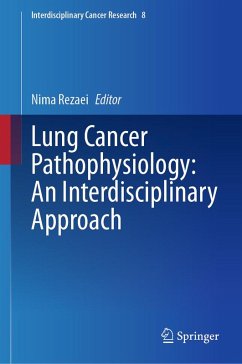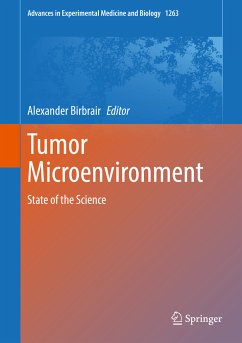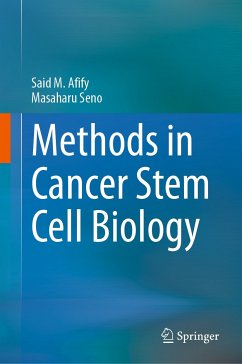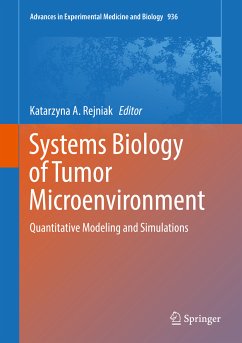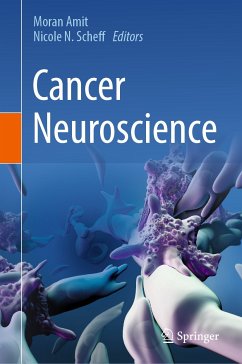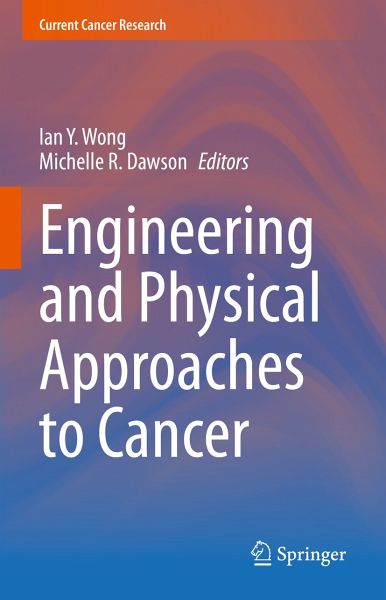
Engineering and Physical Approaches to Cancer (eBook, PDF)
Versandkostenfrei!
Sofort per Download lieferbar
175,95 €
inkl. MwSt.
Weitere Ausgaben:

PAYBACK Punkte
88 °P sammeln!
Engineering and Physical Approaches to Cancer addresses the newest research at this interface between cancer biology and the physical sciences. Several chapters address the mechanobiology of collective and individual cell migration, including experimental, theoretical, and computational perspectives. Other chapters consider the crosstalk of biological, chemical, and physical cues in the tumor microenvironment, including the role of senescence, polyploid giant cells, TGF-beta, metabolism, and immune cells. Further, chapters focus on circulating tumor cells and metastatic colonization, highlight...
Engineering and Physical Approaches to Cancer addresses the newest research at this interface between cancer biology and the physical sciences. Several chapters address the mechanobiology of collective and individual cell migration, including experimental, theoretical, and computational perspectives. Other chapters consider the crosstalk of biological, chemical, and physical cues in the tumor microenvironment, including the role of senescence, polyploid giant cells, TGF-beta, metabolism, and immune cells. Further, chapters focus on circulating tumor cells and metastatic colonization, highlighting both bioengineered models as well as diagnostic technologies. Further, this book features the work of emerging and diverse investigators in this field, who have already made impressive cross-disciplinary scientific contributions.
This book is designed for a general audience, particularly researchers conversant in cancer biology but less familiar with engineering (and vice-versa). Thus, we envision that this book will be suitable for faculty, postdoctoral fellows, and advanced graduate students across medicine, biological sciences, and engineering. We also anticipate this book will be of interest to medical professionals and trainees, as well as researchers in the pharmaceutical and biomedical device industry.
Describes physical aspects of cancer, including collective cell migration, the aberrant tumor microenvironment, circulating tumor cells, and metastatic colonization.
First volume available on the topic of physical aspects of cancer
This book is designed for a general audience, particularly researchers conversant in cancer biology but less familiar with engineering (and vice-versa). Thus, we envision that this book will be suitable for faculty, postdoctoral fellows, and advanced graduate students across medicine, biological sciences, and engineering. We also anticipate this book will be of interest to medical professionals and trainees, as well as researchers in the pharmaceutical and biomedical device industry.
Describes physical aspects of cancer, including collective cell migration, the aberrant tumor microenvironment, circulating tumor cells, and metastatic colonization.
First volume available on the topic of physical aspects of cancer
Dieser Download kann aus rechtlichen Gründen nur mit Rechnungsadresse in A, B, BG, CY, CZ, D, DK, EW, E, FIN, F, GR, HR, H, IRL, I, LT, L, LR, M, NL, PL, P, R, S, SLO, SK ausgeliefert werden.



